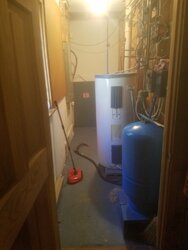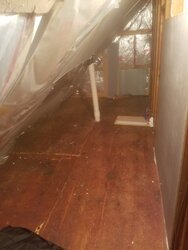Getting ready to pull the trigger on a solar installation.
I tell the sales rep I want solar hot water as well as electric.
Instant resistance.
Sales guy is telling me that making hot water with an electric heat pump is more efficient than solar thermal.
Now to me this doesn't add up no matter how one arranges the numbers.
Since I have a water back in my stove, I especially don't care about diminished performance in winter months.
I would likely just drain the solar hot water system down in at the start of the heating season anyway.
Not a fly by night company, in business for 30 years.
It seems to me that the big push is solar voltaic in spite of the customer's best interest.
I tell the sales rep I want solar hot water as well as electric.
Instant resistance.
Sales guy is telling me that making hot water with an electric heat pump is more efficient than solar thermal.
Now to me this doesn't add up no matter how one arranges the numbers.
Since I have a water back in my stove, I especially don't care about diminished performance in winter months.
I would likely just drain the solar hot water system down in at the start of the heating season anyway.
Not a fly by night company, in business for 30 years.
It seems to me that the big push is solar voltaic in spite of the customer's best interest.




 I was pretty conservative on the output as we get morning and late afternoon shade. It seams plausible that you could could use all the PV power from a small array just to heat water most of the time. So my never statement is probably inaccurate.
I was pretty conservative on the output as we get morning and late afternoon shade. It seams plausible that you could could use all the PV power from a small array just to heat water most of the time. So my never statement is probably inaccurate.